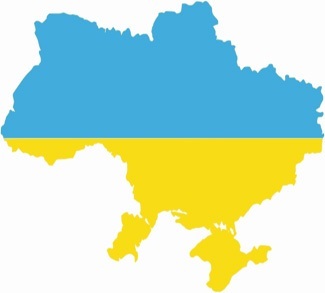Today Ukraine stands at the forefront of the world’s struggle for democracy and freedom, but tomorrow the front could be Taiwan. Preparations for war with China are currently underway, and Taiwan has been purchasing and stockpiling cutting-edge weaponry from the West to better resist a full-scale invasion. Taipei has also been watching Ukraine carefully and learning from its experience fighting a war against Russia. One oft-overlooked teachable moment has been Ukraine’s ability to mount an effective cyber defense, conducted by a distributed group of backers nicknamed the “IT Army.” Taiwan should look to implement a similar framework and develop its own IT Army for if and when China invades.
Russia’s full-scale invasion of Ukraine unleashed the first all-out cyber war between two nation-states. Early on, many feared that Ukraine would suffer a “Digital Pearl Harbor” when faced with a full Russian onslaught, but that moment never came. Russian cyber-attacks fizzled out and Ukraine, with help from both public and private partnerships from the West, withstood Russia’s cyber offensive. In parallel, Ukraine’s Ministry of Digital Transformation spearheaded the effort to bootstrap an IT Army to ensure maximum resistance. Given the clear benefits of the strategy in Ukraine’s case, the lesson for Taiwan becomes clear: don’t wait until being attacked to bolster IT capacity; rather, take preemptive measures to build the force up during peacetime.
The IT Army of Ukraine has contributed extensively to Ukraine’s cyber offensive against Russia, executing a diverse and effective range of attacks. These include leaking documents from Russia’s central bank, disrupting Internet services in territories occupied by Russia, incapacitating one of Moscow’s major Internet providers, and targeting private corporations to hinder economic activities. Such tactics would be helpful in supporting Taiwan’s efforts to defend itself from China.
At its peak, the group boasted a membership of several hundred thousand. Yet a singular focus on followers can be misleading because the IT Army’s attacks have bene growing in effect and scale despite declining subscriber counts on associated Telegram channels. The primary tactic of the IT Army revolves around Denial of Service (DDoS) attacks. The approach is simple yet effective, involving the coordination of a large number of computers to launch a concerted attack on a specific network or website. By flooding the target with an overwhelming volume of requests, the system is overloaded and eventually crashes.
According to its own assessments, the IT Army has inflicted economic losses on Russia estimated between $1 and $2 billion. Consequently, the cyber warfare conducted by the group represents a novel and innovative form of sanctions against their adversaries. Ted (which is a callsign), the spokesperson for the IT Army of Ukraine, shared that, “economic exhaustion plays a decisive role in the outcome of conflicts, and cyber operations, including DDoS attacks and hacker interventions, are powerful tools in achieving this objective.” Such tactics, namely the infliction of ‘economic exhaustion,’ would be relevant in the context of Taiwan as well.
The IT Army’s campaign against Russian Internet providers led to a disruption of 40% of their resources at one point, leading to extensive disruptions in service. The Russian news site Kommersant wrote that “the number of DDoS attacks on Russian companies doubled year on year in the first quarter. Mostly companies from critical industries… Roskomnadzor speaks of repelling almost three times more attacks in the first quarter alone than in the entire 2023.” Furthermore, while Russia has invested billions of dollars in its building out its own satellite internet network, Ukraine’s IT Army launched an attack in April 2024, that took out “two of the largest providers, Astra and Allegrosky” for several days.
Building Up Taiwan’s IT Army
Assembling a volunteer IT Army presents a significant challenge due to its inherently decentralized nature, where members rely more on their own skills than formal training. Fortunately, however, these skills have been developed by our increasingly digital world, opening the door to normal citizens participating in cyber warfare. In Ukraine’s case, the government has also stepped in to draft legislation that would establish a more-formal legal structure to the IT Army. Taiwan too, should consider moving forward with similar legislation to build a legal structure in preparation for future contingencies.
For example, the Ukrainian legislation would open the door to foreign volunteers and potentially afford them legal protections for participating in hacking on Ukraine’s behalf. Vasileios Karagiannopoulos, an Associate Professor in Cybercrime and Cybersecurity at the University of Portsmouth believes that if the IT Army were incorporated into Ukraine’s cyber reserves, it could help offer legal protections for civilians participating in cyber war by offering “legal protection as combatants, potentially shielding them from prosecution for their actions during the war.” Taiwan will also need to consider the legal framework for creation of its own cyber-warfare capabilities, both for its own citizens and for the worldwide volunteers who come to Taiwan’s defense.
Taiwan’s foreign minister Joseph Wu has previously stated that the country is preparing for a potential war with China, which could come as early as 2027. If this timeframe is even remotely possible, Taiwan should immediately mobilize all available resources to prepare for this future conflict, as the importance of cyber warfare can only be expected to increase in the interim. China’s deep integration and reliance on technology will also make it more vulnerable to attacks from a volunteer IT army. In fact, successful cyber operations carried out by Taiwan could have the potential to inflict substantial economic and operational losses on China, thereby limiting some of China’s military power projection.
Taiwan should actively apply the major lessons learned from Ukraine’s IT Army. For example, as Ukraine has developed a strategic blueprint to quickly mobilize its IT Army in times of war, Taiwan too should create a detailed plan for swiftly assembling its own digital defense force. Similarly, inspired by how Ukraine established secure communication channels to efficiently manage its cyber operations, Taiwan should also implement secure systems to coordinate its cyber army and target enemy vulnerabilities.
Furthermore, acknowledging the benefits of international collaboration, as seen in Ukraine’s IT Army, Taiwan should explore strategies for recruiting foreign volunteers, thus enhancing the global reach and capabilities of its own cyber forces. To facilitate the effort, Taiwan should preemptively draft legislation—mirroring Ukraine’s efforts to legally integrate its cyber volunteers—providing a formal structure that offers legal protections and defines the roles of participants within Taiwan’s cyber reserves.
Taiwanese intelligence will also need to identify vulnerabilities, prepare botnets, and establish gateways well in advance to penetrate China’s digital systems quickly. This preparatory work is essential to ensure that, in the event of a conflict, Taiwan can quickly and efficiently target critical Chinese infrastructure and systems. Therefore, to ensure operations can be scaled to wage large-scale DDoS attacks and other cyberwarfare offensives, the Taiwanese government will need to reach as many people as possible who are willing to join the fight. This strategy will likely need to include creating educational materials that can be widely shared on social media to recruit younger individuals who are willing to educate themselves and partake in DDoS efforts.
However, not all preparations will be technical. One limitation that Ukraine’s IT Army has faced is engaging with non-technical audiences. To scale the work of effective botnets and DDoS attacks, more people are needed to join the attacks. But the average civilian citizen does not consider themselves capable of conducting cyberattacks. The reality is that anyone can follow simple instructions to download a tool and allow their computer’s processing power and Internet access to be added to the botnet and help flood an enemy’s networks to bring them down in times of war.
Ukraine’s IT Army has proved to be an effective fighting force against Russia in the cyber realm. As Taiwan prepares for a potential conflict with China, it must take all necessary steps to prepare itself not only for the physical battlefield but the digital one as well.
David Kirichenko is a freelance journalist and an Associate Research Fellow at the Henry Jackson Society, a London-based think tank. He can be found on the social media platform X @DVKirichenko.




